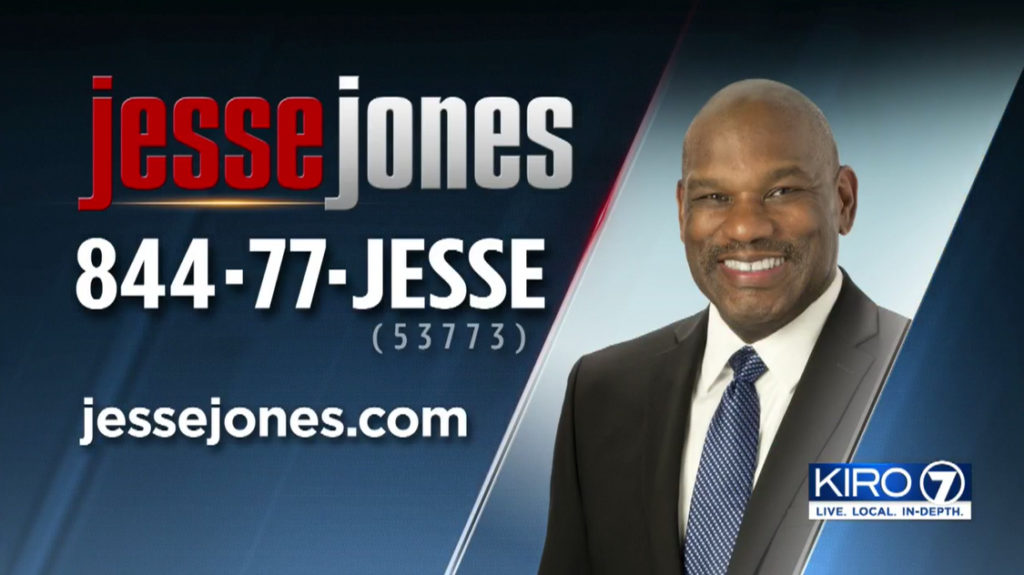Seattle, WA — Age is just a number, but for millennials searching to buy a home, car or even getting a credit card, their credit denial numbers aren’t looking good.
“I’m definitely concerned about it,” says Ted Rossman, industry analyst for CreditCards.com.
According to a national survey, 32 percent of millennials have been denied credit this year - compared with 22 percent for Gen-Xers and 11 percent for Baby Boomers.
And making matters worse for them, lenders are not easing up on their standards.
“And I think that there’s a few things going on here,” says Rossman. “One is the pandemic has made lenders more cautious about risk. For example, in the second quarter the federal reserve found that more than 7 in ten credit card issuers had tightened their lending standards. Zero percent had eased them. "
Rossman has a few tools he recommends to improve credit scores. For example, eCredable’s lift product which allows consumers to add utility and phone payments to their score.
Experian Boost will even allow customers to use their Netflix payments to improve their credit situation.
There’s more good news.
“We found that anyone that was rejected was much more likely to take a step to improve their credit afterwards than somebody who was unaffected,” says Rossman.
What’s ironic about this is the great financial divide. Food lines are growing and millions are out of work. All while the average credit score is going up during the pandemic.
The issue is, if you fall behind now, getting back on track will be tougher than ever.
If you’ve taken a financial hit over the last year, it’s fixable. Here are some tips for building and rebuilding good credit:
Credit builder loans
Typically, these work like installment loans - but you don’t get the money up-front. Consumers agree to make payments to establish a positive history, and at the end of the loan they get access to the money.
PRO:
- Widely available at banks and credit unions.
- Online options like Self have made it quick and easy to set up accounts.
- Often low monthly payments and a range of loan timelines.
CON:
- They can be expensive, between sign-up fees and interest.
Community Development Financial Institutions
These are local financial institutions, usually nonprofits, which serve low-income communities. Eligible clients can sign up for credit builder loans or savings accounts and get cash incentives for on-time payment history and for meeting savings goals. Find a local organization here.
Lending Circles
A group of people agree to make monthly payments, with the pot of money paid out to one person until each member has been paid. These “social loans” have been around for decades, but nonprofit Mission Asset Fund allows the positive payment history to be reported to all three credit bureaus.
PRO:
- Usually interest-free.
CON:
- It may take a long time to get your money.
- Lending circles are not available in every community.
Become an authorized user on a credit card
Your name is added to the credit card of someone you trust - usually a parent or spouse.
PRO:
- Build a positive payment history with the help of someone you trust.
- Getting on a credit card has more impact on your credit score, if you can show consistent on-time payment history and keep your balance low.
- Usually free to start.
CON:
- If the primary card user misses a payment, it negatively affects your history.
- Like any credit card, you will owe interest if you carry over a balance.
Secured credit cards or certificate-backed loans
For a secured credit card, consumers are often required to pay a cash deposit worth the entire line of credit. Certificate-backed loans require an existing account or a car as collateral.
PRO:
- Unlike being added as an authorized user on someone else’s card, your positive payment history depends on you alone.
- A secured credit card gives you double the impact if you pay on time and keep your balance low.
CON:
- Cash deposit for a credit card ties up more of your money.
- Certificate-backed loans charge interest.
- Loans also require you to be a member of, or join, a financial institution.

Email Jesse right now at consumer@kiro7.com
Cox Media Group
Cox Media Group





